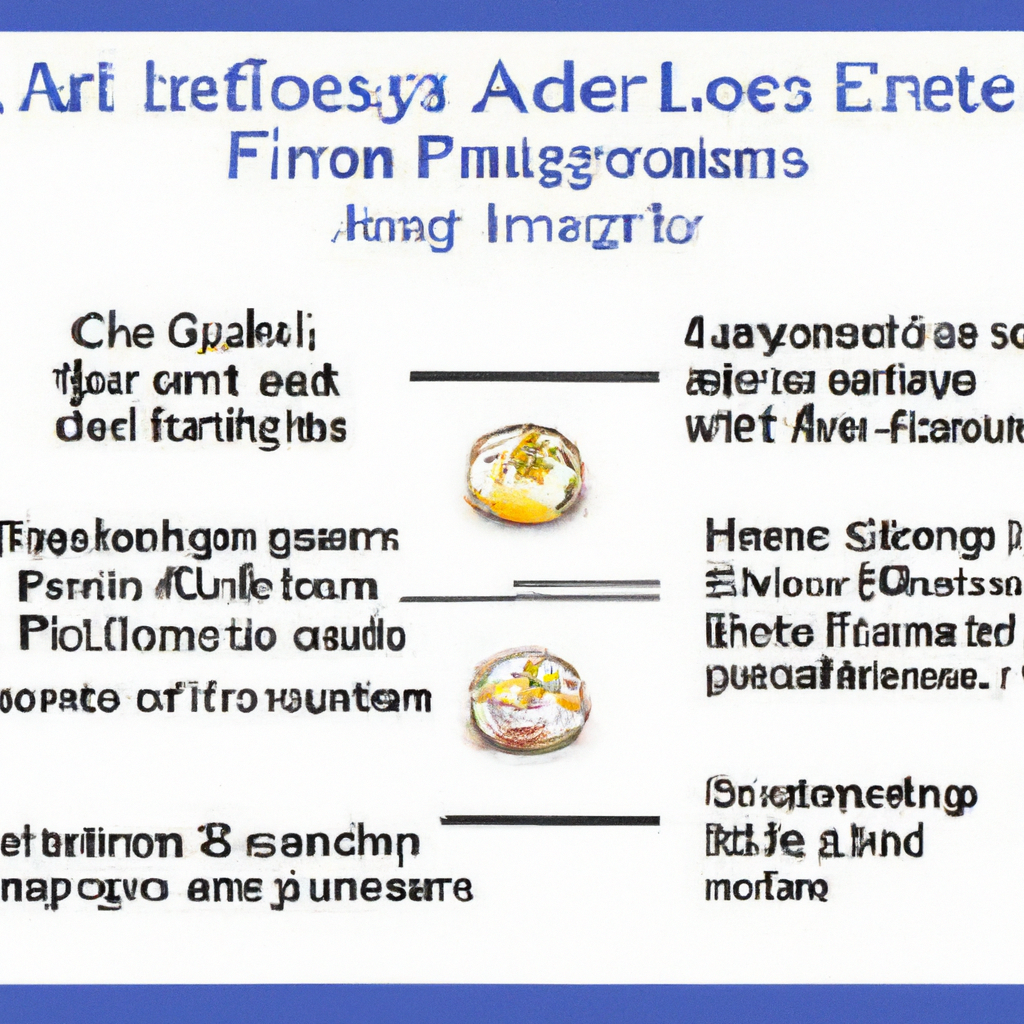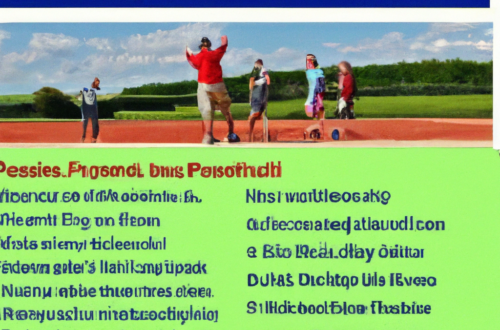
How Do I Handle Allergies Or Dietary Restrictions While Dining Out Abroad?
Traveling to new countries and experiencing different cuisines is an exciting adventure, but it can become a challenge if you have allergies or specific dietary restrictions. Navigating through menus and communicating your needs may seem daunting at first, but with a few helpful strategies, you can enjoy delicious meals without any worries. In this article, we will explore tips and tricks to help you handle allergies or dietary restrictions while dining out abroad, ensuring that you have the best culinary experience wherever you go.
Researching before Traveling
Understanding Local Cuisine
Before setting off on your travel adventure, it’s essential to familiarize yourself with the local cuisine of your destination. Understanding the types of dishes and ingredients commonly used will help you make informed decisions while dining out. Researching traditional dishes and local cooking techniques will allow you to have a better understanding of which foods may be safe or risky for your particular dietary needs.
Learning about Common Allergens
One of the most crucial steps in preparing for dining out abroad is to educate yourself about common allergens in the local cuisine. By knowing the ingredients that commonly cause allergic reactions, you can be proactive in avoiding them. For example, some of the most prevalent allergens include peanuts, tree nuts, shellfish, soy, dairy, gluten, and eggs. Understanding the local names for these allergens will be particularly helpful when communicating with restaurant staff.
Finding Suitable Restaurants
When it comes to finding suitable restaurants in your travel destination, a little research goes a long way. Look for restaurants that cater to specific dietary needs or offer allergen-friendly options on their menus. Online resources such as food blogs, travel websites, and restaurant review platforms can provide valuable insights into allergy-friendly establishments. Don’t forget to check out local online forums or social media groups dedicated to food allergies or dietary restrictions for recommendations from like-minded individuals.
Reading Reviews and Recommendations
Reading reviews and recommendations from fellow travelers who share your dietary restrictions can be extremely beneficial. Take note of their experiences and suggestions for allergy-friendly restaurants or specific dishes in your destination. Websites like TripAdvisor or Yelp are excellent resources for finding detailed reviews and useful insights from previous visitors. Don’t hesitate to reach out to the reviewers if you have any specific questions about their experiences or recommendations.
Communication at Restaurants
Informing the Staff in Advance
To ensure a smooth dining experience, informing the restaurant staff about your allergies or dietary restrictions in advance is essential. Many restaurants are accommodating and will make special arrangements to meet your needs if they are aware of them beforehand. You can either call ahead or email the restaurant to let them know about your specific requirements. This way, the staff can be prepared to provide you with accurate information about their menu or make accommodations as necessary.
Using Translation Apps or Cards
Language barriers can sometimes pose challenges when communicating your dietary needs. However, with the help of translation apps or cards, you can effectively communicate your allergies or dietary restrictions to restaurant staff. Translation apps, such as Google Translate, allow you to input your dietary preferences or allergies and translate them into the local language. Alternatively, printed translation cards with phrases like “I have a severe nut allergy” can be handed to the staff, ensuring they understand your needs.
Speaking with Confidence
When communicating your allergies or dietary restrictions to the restaurant staff, it’s important to speak with confidence. Clearly articulate your needs and ensure that the staff understands the severity of your condition. Don’t hesitate to ask questions or seek clarification about the ingredients used in a specific dish. By speaking confidently, you’ll convey the importance of your dietary needs and increase the likelihood of receiving accurate information and appropriate accommodations.
Confirming Ingredients and Cross-Contamination
To avoid any potential risks, it’s crucial to confirm the ingredients and inquire about the potential for cross-contamination with allergens. Ask the staff about the preparation methods, particularly regarding shared cooking surfaces, utensils, or fryers. By verifying these details, you can make an educated decision about the safety of a dish. Don’t be afraid to request modifications or substitutions to ensure your meal is free from allergens and meets your dietary requirements.

Navigating Menus
Identifying Potential Allergens
When navigating menus, it’s important to carefully review the descriptions of dishes and identify any potential allergens. Look for keywords like “peanuts,” “nuts,” “gluten,” “dairy,” or “shellfish” that may indicate the presence of allergens. Also, pay attention to sauces, dressings, or garnishes that may contain hidden allergens. If you have any doubts or concerns about a particular dish, don’t hesitate to ask the staff for clarification.
Modifying Dishes
If you find a dish that looks enticing but contains allergens, don’t be discouraged. Many restaurants are willing to modify their dishes to accommodate dietary restrictions. You can ask the staff to remove certain ingredients or make substitutions, such as replacing a sauce with a safe alternative. Most chefs are accustomed to handling special requests and will strive to provide you with a safe and delicious meal.
Requesting Ingredient Substitutions
In some cases, the kitchen may be unable to modify a dish to suit your needs. However, they might offer ingredient substitutions or alternative dishes that are naturally allergen-free or can be made without allergens. Don’t hesitate to ask if there are other options available, as the restaurant might be able to suggest something that meets your dietary needs.
Asking About Preparation Methods
Understanding the preparation methods used for certain dishes is key to ensuring their safety. Ask the staff about the cooking techniques, potential cross-contamination risks, or the possibility of using separate utensils or cookware. By inquiring about these details, you can make an informed decision about the dishes that are safest for you to consume.
Cultural Etiquette
Respecting Local Customs
Respecting local customs and cultural norms while dining out abroad is crucial to fostering positive experiences. Take the time to familiarize yourself with the dining etiquette of your destination. For example, some cultures may consider it impolite to leave food unfinished, while others may embrace the sharing of dishes. By adhering to these customs, you’ll show your respect for the local culture and create a more enjoyable dining experience for yourself and those around you.
Understanding Different Attitudes
It’s important to note that attitudes toward allergies or dietary restrictions may vary across cultures. Some cultures may have a deep understanding and respect for food allergies, while others may not be as familiar with the concept. Be prepared to explain your dietary needs more extensively in some destinations. Maintain an open mind and remember that education and awareness can go a long way in fostering understanding between yourself and the locals.
Explaining Your Dietary Needs Politely
When it comes to explaining your dietary needs, it’s crucial to do so politely and respectfully. Use simple and clear language to communicate your restrictions or allergies. Avoid being confrontational or dismissive if the staff or locals seem unaware or unfamiliar with your dietary requirements. Patiently explain your needs, and provide suggestions or alternatives if necessary. By approaching the situation with kindness and understanding, you’ll likely receive more accommodating responses.
Being Open to Local Suggestions
While it’s important to advocate for your dietary needs, being open to local suggestions can enhance your dining experiences. Embrace the opportunity to try traditional dishes or local specialties recommended by the staff or locals. Be sure to communicate your restrictions or allergies to ensure that the recommendations align with your dietary needs. By being flexible and open-minded, you’ll have the chance to explore exciting flavors and immerse yourself in the local culinary culture.

Seeking Help from Locals
Engaging with Hotel or Host
Engaging with your hotel or host can provide invaluable assistance when it comes to navigating allergies or dietary restrictions. Inform them about your specific needs, and they can provide guidance on allergy-friendly restaurants in the area or offer recommendations based on their local knowledge. They can also help communicate your dietary needs to restaurant staff or assist in making reservations at suitable establishments.
Consulting Local Allergy or Dietary Groups
If you’re looking for more specialized information or recommendations, consider reaching out to local allergy or dietary groups. These groups often have a wealth of knowledge and resources tailored to specific dietary needs. They can provide insider tips, local restaurant suggestions, and even connect you with individuals who share your dietary restrictions. Consulting these groups can be particularly helpful if you’re traveling to a destination where food allergies or dietary restrictions are less common.
Asking for Recommendations
Don’t be afraid to seek recommendations from locals when it comes to finding allergy-friendly restaurants. Locals often have the best insights into hidden gems or lesser-known establishments that cater to specific dietary needs. Strike up a conversation with the locals, whether it be the hotel staff, taxi drivers, or shopkeepers, and ask for their favorite allergy-friendly eateries. You might discover some incredible dining experiences that aren’t necessarily well-known to tourists.
Participating in Food Tours or Cooking Classes
Participating in food tours or cooking classes can be an excellent way to navigate allergies or dietary restrictions while indulging in the local cuisine. These experiences often provide insights into the unique flavors and ingredients of the region, and some operators may even cater to specific dietary needs. Food tours can introduce you to allergy-friendly street food vendors or hidden local gems, while cooking classes allow you to learn how to prepare traditional dishes tailored to your dietary requirements.
Preparing a Travel Kit
Carrying Medications and Medical Documents
When traveling with allergies or dietary restrictions, it’s crucial to carry your necessary medications and medical documents with you at all times. Ensure that you have an ample supply of any prescribed medications, such as epinephrine auto-injectors for severe allergic reactions. It’s also advisable to carry a letter from your doctor explaining your allergies or dietary restrictions, as well as any other pertinent medical information. These documents can be instrumental in case of emergencies or when communicating with medical professionals in a foreign country.
Using Translation Cards for Emergencies
Translation cards can be a lifesaver in emergency situations or when faced with language barriers. These cards clearly state your allergies or dietary restrictions in the local language, allowing you to communicate your needs effectively, even if you don’t speak the language fluently. You can find pre-made cards or create your own, ensuring that the translations are accurate and specific to your dietary needs.
Keeping Snacks or Safe Foods
It’s always a good idea to carry safe snacks or foods that you know are allergen-free with you. This ensures that you have a backup option in case you’re unable to find suitable dining options during your travels. Non-perishable snacks like energy bars, dried fruit, or allergy-friendly packaged foods are convenient choices that can provide comfort and sustenance when needed.
Planning for Unexpected Situations
Despite the best preparations, unexpected situations can still arise. It’s important to be mentally prepared and plan for contingencies. Research the locations of local hospitals or medical facilities nearest to your accommodation or popular tourist areas. Familiarize yourself with emergency numbers in the country you’re visiting, including the local equivalent of “911.” Having this information readily available can prove invaluable in case of allergic reactions or other medical emergencies.

Navigating Language Barriers
Learning Key Phrases
Learning a few key phrases in the local language can make a significant difference in your ability to communicate your allergies or dietary restrictions effectively. Phrases like “I have a severe allergy to [specific allergen],” “Does this dish contain [specific ingredient]?”, or “Are there any alternatives without [specific allergen]?” can be particularly useful. Locals appreciate the effort put into learning their language and will often go above and beyond to assist you.
Using Food-Specific Vocabulary
Familiarize yourself with food-specific vocabulary in the local language to better navigate menus and communicate your dietary needs. Learn the names of common allergens or specific ingredients that you need to avoid. Knowing how to say “peanut,” “gluten,” “dairy,” or “soy” will enable you to quickly identify potential allergens on menus or inquire about their presence in dishes.
Seeking Assistance from Locals
When faced with language barriers, don’t hesitate to seek assistance from locals. They are often more than willing to help, and their familiarity with the local language and culture can be invaluable in bridging the communication gap. Approach locals politely and ask if they can assist you in translating your dietary needs or clarifying menu options. Engaging with locals in this way can lead to memorable connections and a deeper understanding of the local culture.
Using Online Translation Tools
Online translation tools and apps can be reliable companions when navigating language barriers. Whether you encounter unfamiliar ingredients or need to communicate specific dietary requirements to restaurant staff, these tools can help you overcome language obstacles. Utilize mobile apps or websites that allow you to input your dietary restrictions or translate phrases on the spot. However, keep in mind that these tools may not always provide precise translations, so it’s important to remain attentive and confirm translations with locals if possible.
Educating Yourself about Cross-Contamination
Understanding Different Preparation Areas
Cross-contamination can occur when allergens come into contact with food through shared preparation areas. Educate yourself about the different preparation areas in the kitchen, such as grills, fryers, cutting boards, or utensils. Inquire about how the restaurant handles allergen-free dishes separately to minimize the risk of cross-contamination. By understanding the potential sources of cross-contamination, you can ensure that your meals are prepared in a safe environment.
Awareness of Shared Cooking Utensils
Shared cooking utensils, such as knives or spatulas, can introduce allergens to otherwise safe dishes. Be aware of the restaurant’s practices regarding the use of shared utensils, and ask if they have dedicated utensils for preparing allergen-free meals. This precaution can significantly reduce the risk of cross-contamination and help keep your dining experiences safe.
Preventing Cross-Contamination Risks
While the responsibility of preventing cross-contamination ultimately lies with the restaurant staff, there are steps you can take to minimize the risks. Clearly communicate your allergies or dietary restrictions to the restaurant staff, emphasizing the importance of avoiding cross-contamination. Ask if they can clean cooking surfaces, fryers, or utensils thoroughly before preparing your meal. This proactive approach can help ensure that your food is prepared safely.
Confirming Safe Handling Practices
Before ordering, take a moment to observe the restaurant’s handling practices. Look for measures such as staff wearing gloves or washing hands frequently, as these are indicators of a commitment to food safety. If you have any doubts about the restaurant’s hygiene practices, trust your instincts and consider finding an alternative dining option where you feel more confident about the handling of allergen-free meals.

Food Allergy Cards and Apps
Carrying Allergy Alert Cards
Allergy alert cards are an invaluable tool when dining out with allergies or dietary restrictions abroad. These small laminated cards clearly state your allergies or dietary requirements, usually in both English and the local language. You can present these cards to restaurant staff, ensuring that your needs are understood and taken into consideration. Many online resources offer pre-made allergy alert cards or templates that you can personalize to suit your specific dietary needs.
Using Food Allergy Mobile Apps
Food allergy mobile apps designed specifically for travelers can be a game-changer when searching for allergy-friendly restaurants. These apps provide allergen information, user reviews, and recommendations for dining establishments in various cities worldwide. They often allow users to filter options based on specific allergens, making it easier to find safe dining options. Explore different food allergy apps and find one that best suits your needs and the destinations you’ll be visiting.
Understanding App Features
When using food allergy mobile apps, familiarize yourself with the various features they offer. Some apps may provide comprehensive allergen information for specific dishes on restaurant menus, or allow users to add their own reviews and recommendations based on their dining experiences. Others may provide alerts for new added reviews or changes to menu items. Make the most of these features to enhance your dining experiences and discover hidden allergy-friendly gems.
Locating Restaurants with Allergy Information
One of the primary advantages of food allergy mobile apps is their ability to help you locate restaurants with comprehensive allergy information. These apps often provide detailed allergen menus for participating restaurants, enabling you to make informed decisions about where to dine. Take advantage of this feature and use it to find restaurants that prioritize food safety and cater to your specific dietary restrictions.
Preparing for Emergency Situations
Knowing Emergency Numbers
Before embarking on your travels, ensure that you know the emergency numbers in the country you’ll be visiting. Research and familiarize yourself with the local equivalent of “911” to quickly connect with emergency services in case of allergic reactions or other emergencies. Having this information readily available can help you act swiftly in critical situations, providing peace of mind throughout your journey.
Finding Nearest Hospitals
Whether you’re traveling to a bustling city or a remote location, it’s essential to know the locations of nearby hospitals or medical facilities. Familiarize yourself with the hospitals closest to your accommodation or popular tourist areas. Take note of their addresses, contact numbers, and emergency departments. Should the need arise, you can quickly access medical assistance without wasting valuable time searching for nearby healthcare facilities.
Having Emergency Action Plans
Preparing emergency action plans is crucial for managing allergies or dietary restrictions while traveling. Discuss with your travel companions, friends, or family members the steps to take in case of an allergic reaction or other emergencies. Ensure that they understand your symptoms, the importance of administering any necessary medications promptly, and the emergency contact details of your healthcare provider. This collaborative approach can help you feel more secure when dining out abroad.
Informing Travel Companions
Traveling with companions? Be sure to inform them about your allergies or dietary restrictions before you embark on your journey. Explain the potential risks and symptoms of severe allergic reactions so that they can assist you if an emergency arises. Educate them about the appropriate use of any medications you carry, including epinephrine auto-injectors, and teach them how to administer them if needed. Open communication with your travel companions ensures that everyone is prepared to act quickly and appropriately in case of an emergency.
Congratulations! You have successfully completed an informative and comprehensive article on handling allergies or dietary restrictions while dining out abroad. With this guide, you’ll be well-equipped to navigate unfamiliar cuisines and communicate your dietary needs effectively, ensuring a safe and enjoyable dining experience wherever your travels take you. Bon appétit!





